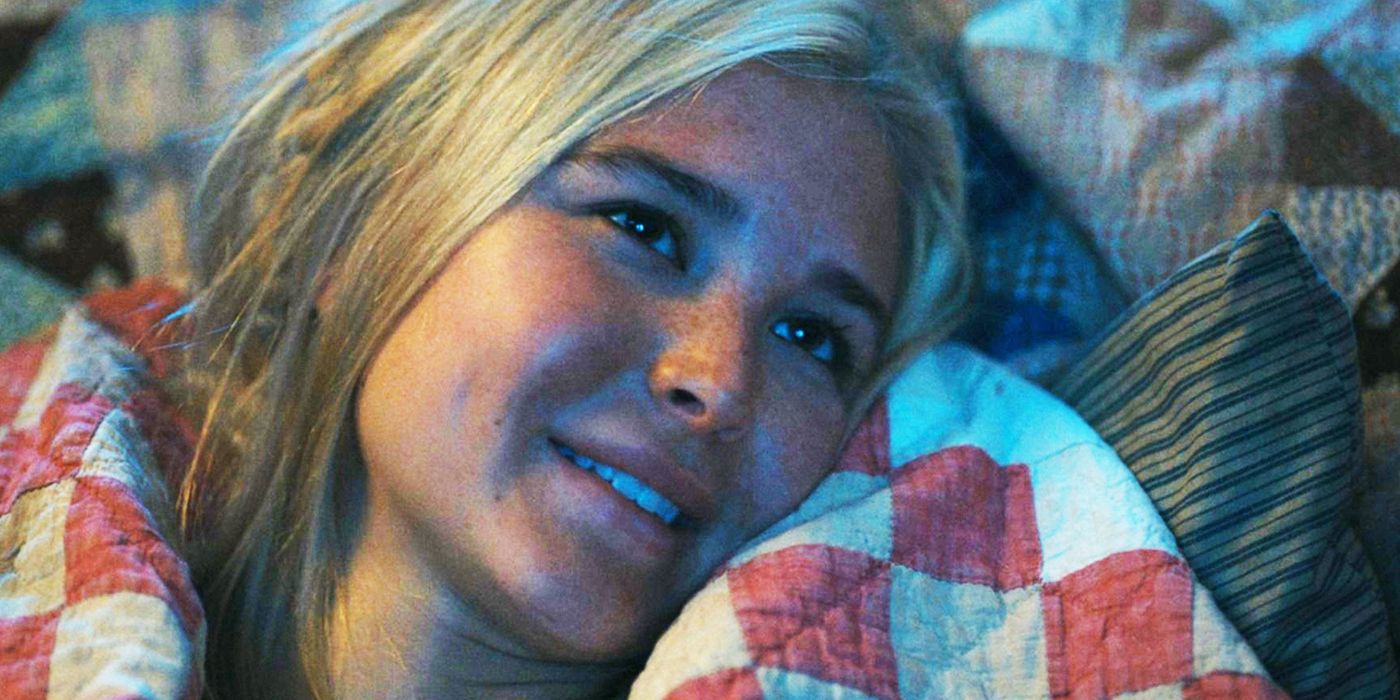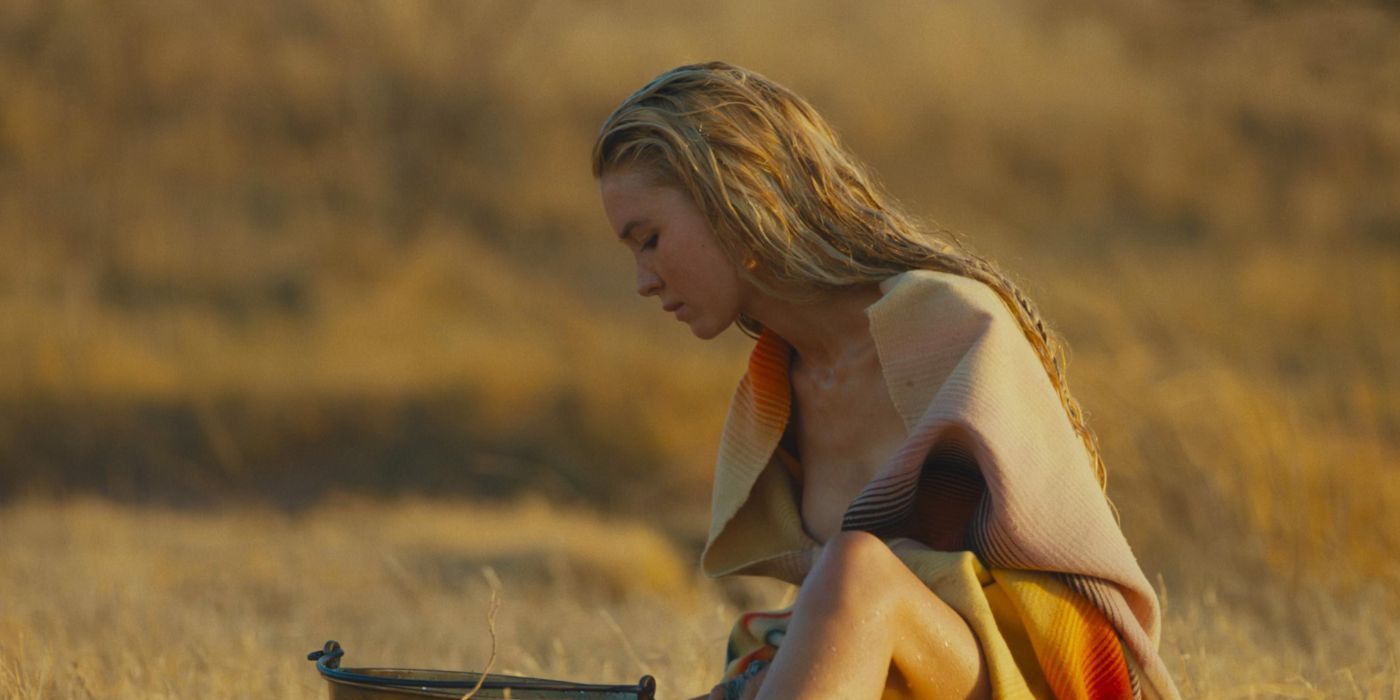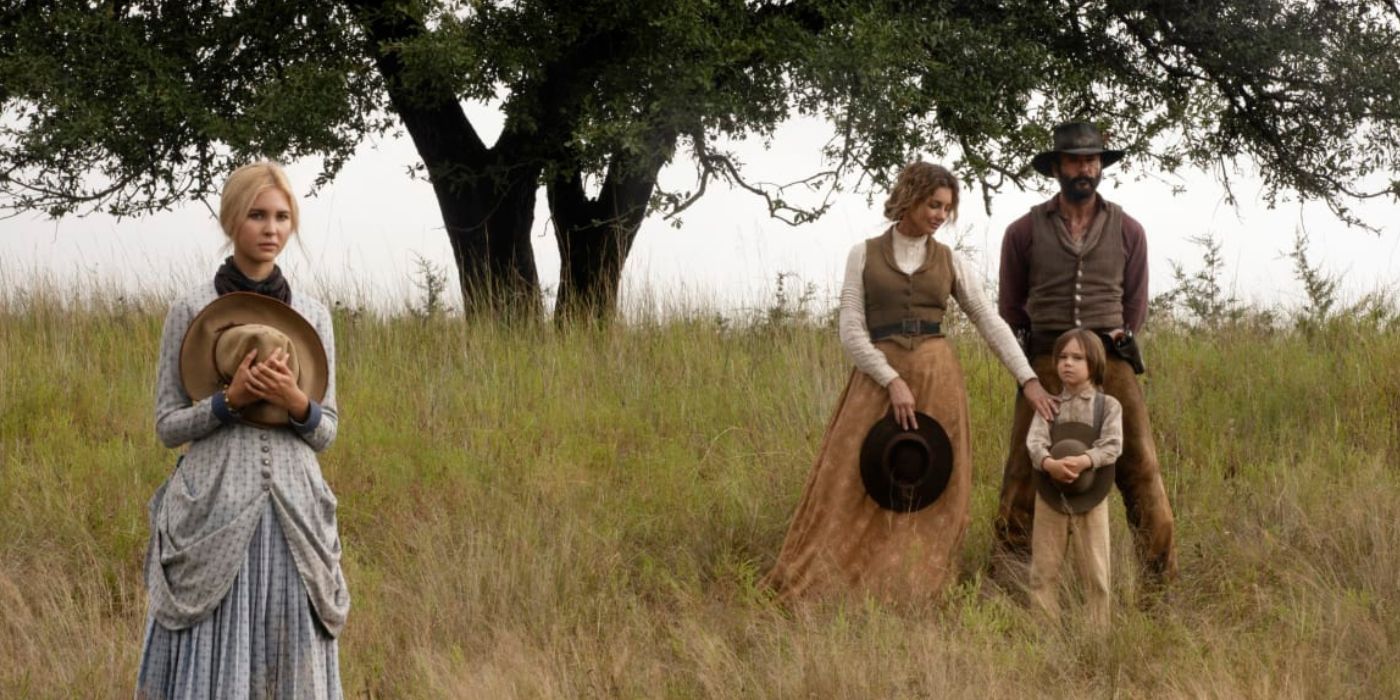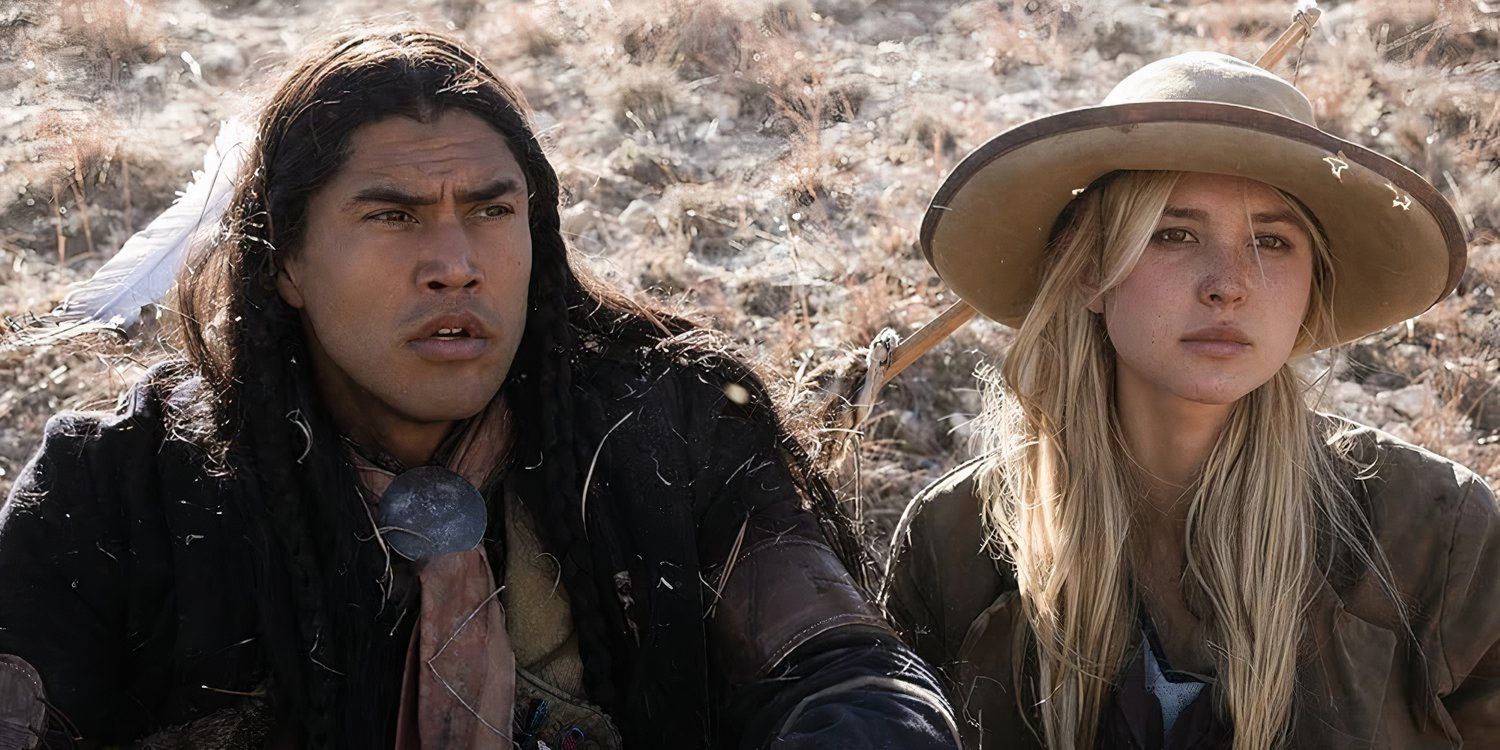Why ‘1883’ Killed Off Elsa Dutton in Heartbreaking Finale!
The finale of the 19th-century Yellowstone prequel killed off its most important character, but many viewers still wonder why Elsa dies in 1883. While the death is tragic, it is necessary to move the story of the Duttons forward and to set up the world of 1923, Yellowstone, and beyond. Elsa Dutton (Isabel May) is the daughter of Margaret (Faith Hill) and James Dutton (Tim McGraw) — the founders of the Yellowstone Dutton Ranch. While it was sudden and shocking, the buildup toward Elsa’s death begins when she is shot with a poisoned arrow during an attack on the caravan.
What Happened To Elsa Dutton In The 1883 Finale
Elsa Died In James Dutton’s Arms

Though her infection got progressively worse, Elsa made it to Fort Casper. However, the resident doctor was rude and unable to help her. Shea then found out that Fort Casper was being run by the Wyoming Stockgrowers Association, which employed the horse thieves they killed earlier, so they left quickly and headed north to Montana.
1883’s Elsa Dutton, the show’s narrator, finally succumbed to the infection and died.
Meanwhile, James and Margaret agree to settle the land wherever Elsa died. An Indigenous man then pointed James to Paradise Valley, where he and Elsa rode for her to pick her own grave. By 1883‘s ending, Elsa Dutton, the show’s narrator, finally succumbed to the infection and died.
Why Does Elsa Die In 1883?
Elsa’s Death Captures The Yellowstone Prequel Core Themes Of The Show In A Single Moment

Elsa Dutton’s death in the 1883 finale was a result of the Lakota warriors reacting logically to the situation. During the late 1800s, the Westward Expansion of America was enabled by the Louisiana Purchase, which gave white settlers legal precedent to not only claim Indigenous American lands but to do so by any means necessary, which often included displacing and slaughtering Indigenous settlements.
Elsa Dutton’s death can only truly be blamed on the white genocide of Indigenous America.
The Lakota were simply defending their lands and people from white colonists who had been slaughtering Indigenous Americans even before the Louisiana Purchase in 1803. In short, Elsa Dutton’s death can only truly be blamed on the white genocide of Indigenous America. Elsa’s final fate is a reminder that 1883 is based on the true stories and real lives of settlers in the late 19th century, however uncomfortable those true stories may be.
Elsa’s Death In 1883 Is Pivotal For Yellowstone
The Death Of Elsa Dutton Kickstarts The Yellowstone Franchise

Other Notable Dutton Family Deaths:
| Character | Actor | Series | Death |
|---|---|---|---|
| James Dutton | Tim McGraw | Yellowstone (flashback) | Shot |
| Margaret Dutton | Faith Hill | 1923 (mentioned) | Hypothermia |
| Claire Dutton | Dawn Olivieri | 1883 | Suicide |
| John Dutton | James Badge Dale | 1923 | Shot |
|
John Dutton II
|
Dabney Coleman | Yellowstone | Cancer |
|
Lee Dutton
|
Dave Annable | Yellowstone | Shot |
Elsa Dutton’s death in 1883 had to happen to close the story of how the Duttons found Paradise Valley, which is a lesson in the dark, cruel history of white America. The circumstances of Elsa’s death foreshadowed the tensions between the Duttons and the Broken Rock Indian Reservation in Yellowstone and also potentially spoiled the ending of Yellowstone season 5. Before Elsa’s death, the location of Paradise Valley was revealed to James by an Indigenous man.
Elsa Dutton’s fate answered the question of what the family had to give up to claim the land.
He warned James his people would take the land back after the Duttons had owned it for seven generations. James replied that, by that time, they could have it back. In the 1883 finale, Elsa Dutton’s fate answers the question of what the family had to give up for the land, revealing why the Duttons have a deep connection with Paradise Valley. Elsa is the heart and soul of the show, and her fate encapsulates the social commentary and overarching themes of not just 1883, but the rest of Sheridan’s neo-Western universe.
Killing Elsa In 1883 Wasn’t A Decision Made Lightly
The Yellowstone Franchise Doesn’t Kill Dutton’s On A Whim

What was most shocking about how Elsa died in 1883 is that it seemed like she would be the protagonist of a new story. Serving as 1883‘s narrator, the show zoomed in on her journey of confronting the brutality of frontier life and losing her innocence, yet never her hopeful spirit. However, what fans failed to realize is that Elsa’s story was never meant to continue, as 1883 was only meant to be a brief glimpse into the Dutton family’s past. Sheridan explained (via Deadline), “As a storyteller it feels close-ended.”
Producer David Glasser echoed Sheridan’s opinion that this story had a definitive ending from the beginning. Rather than throw Elsa’s death in the finale as a way to shock audiences and get them to tune in for a second season, 1883 led to this end from the beginning. Glasser reiterates that the entire journey comes together for each character in 1883. The closure they needed was achieved. The producer praised Sheridan’s ability to tell the viewers that Elsa’s death is imminent but make them think she’ll survive.
Glasser insists (via THR) that with Sheridan’s work “there’s never anything that’s on the nose.” As heartbreaking as Elsa’s death in 1883 was for viewers to watch, Tim McGraw reveals (via TV Line) that the actual shooting of it was not any easier. While speaking about the emotional finale, McGraw admitted even reading the script had him crying.
“It was devastating. I don’t think we shot it [more than] four or five times. The very first time we shot it, the very first take of it, Isabel and I both were just completely falling apart, and we couldn’t help it. Through the whole scene we were both just sobbing.”
When it came time to film the scene in which Elsa dies in John’s arms, McGraw revealed that the first take was unusable as the 1883 actors were crying too much. He also revealed that May helped make his performance more emotional,
” She goes, ‘What’s your favorite things about your daughters?’ She put the knife right in my heart, boy. She knew exactly what she was doing. She was a joy to work with .”




